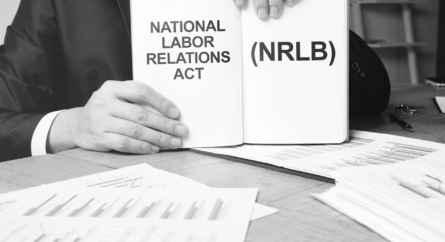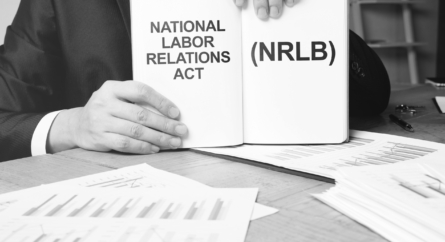NLRB Narrows Independent Contractor Definition
In a decision titled The Atlanta Opera, Inc. and issued by the National Labor Relations Board (“NLRB”) on Tuesday, June 13, 2023 (the “Decision”), the NLRB made it more difficult for employers to classify workers as independent contractors under the National Labor Relations Act (NLRA). The NLRA provides employees (but not independent contractors) with the right to organize and join a union.
The Decision eliminates the most recent independent contractor test, adopted by the NLRB in its 2019 SuperShuttle ruling (“SuperShuttle Test”), and replaces it with a standard previously adopted by the NLRB in its 2014 FedEx Home Delivery ruling (“FedEx Test”). Both tests, at their core, consider a non-exhaustive list of common-law factors when determining if a worker is properly classified as an independent contractor, which include the following:
- The extent of control the employer may exercise over the details of the work
- Whether the worker is engaged in a distinct occupation or business
- The kind of occupation, related to whether the work is usually done under the direction of the employer or by a specialist without supervision
- The skill required in the particular occupation
- Who supplies the instrumentalities, tools, and the place of work
- The length of time for which the worker is employed
- The method of payment, whether by time or by the job
- Whether the work is part of the regular business of the worker
- Whether the parties believe they are in an employer-employee relationship
- Whether the employer and the worker perform the same type of work
The main difference between the FedEx Test and the SuperShuttle Test is how and to what extent the NLRB incorporates “entrepreneurial opportunity” into the list of factors above. Entrepreneurial opportunity is the opportunity that a worker has to function as an independent business and to experience the risk of loss and gain that comes with being a business owner. For example, does a delivery driver have the potential to hire subordinate drivers and/or deliver for other businesses? If so, then entrepreneurial opportunity more likely exists.
In 2014, in deciding which factors should control the proper classification of independent contractors, the FedEx Test de-emphasized a worker’s entrepreneurial opportunity and instead focused on whether the worker was – in fact – operating an independent business. For example, is the worker actually buying their own supplies and actively serving other clients while serving the employer, and/or does the worker have control over how and when they perform their work? If yes, that is suggestive of independent contractor status. While the FedEx Test permits entrepreneurial opportunity as a consideration, it is not a primary consideration; rather the Test looks at it as one way to determine if the worker is – in fact – operating an independent business.
In 2019, the NLRB did an about-face and adopted the SuperShuttle Test, which made entrepreneurial opportunity its core focus. In that case, the NLRB considered the factors listed above but just for the purpose of answering one question: Did the worker have sufficient opportunity to experience the risk of loss and gain that comes with being a business owner?
In the most recent Decision, the NLRB rejected the SuperShuttle Test’s focus on entrepreneurial opportunity as the primary consideration. Instead, the NLRB has once again adopted the FedEx Test and said that the factors listed above will be weighted depending on the factual circumstances of each case and that a primary question will be whether the worker is “in fact” rendering services as part of an independent business. With a return to the FedEx Test, circumstances suggesting control over a worker will gain importance in the NLRB’s decision-making.
By minimizing the importance of entrepreneurial opportunity for gain or loss, the reinstated FedEx Test narrows the independent contractor definition because employers must once again show that the worker is “in fact” rendering services as part of an independent business, as opposed to focusing on the worker’s “opportunity” to experience loss and gain. The renewed emphasis on control also narrows the independent contractor definition because many actions suggestive of “control” (e.g., overseeing work product) overlap with actions that employers naturally gravitate to in order to ensure that independent contractors provide a satisfactory service.
Client Tip
In light of this new, more restrictive standard in the context of the NLRA and the right to organize, employers should examine the classification of their independent contractors with the assistance of counsel.
Clients should remember that independent contractor tests exist in other contexts, including Massachusetts’ independent contractor test, which governs whether a worker is an employee subject to the Commonwealth’s wage and hour laws. This test, which is especially stringent, is not impacted by the NLRB’s decision in The Atlanta Opera, Inc. Employers with questions about the varying independent contractor tests should seek guidance from counsel.
Categorized: Employment, Independent Contractors
Tagged In: employee classification, employer-employee relationship, entrepreneurial opportunity, FedEx Test, independent contractor test, National Labor Relations Act








